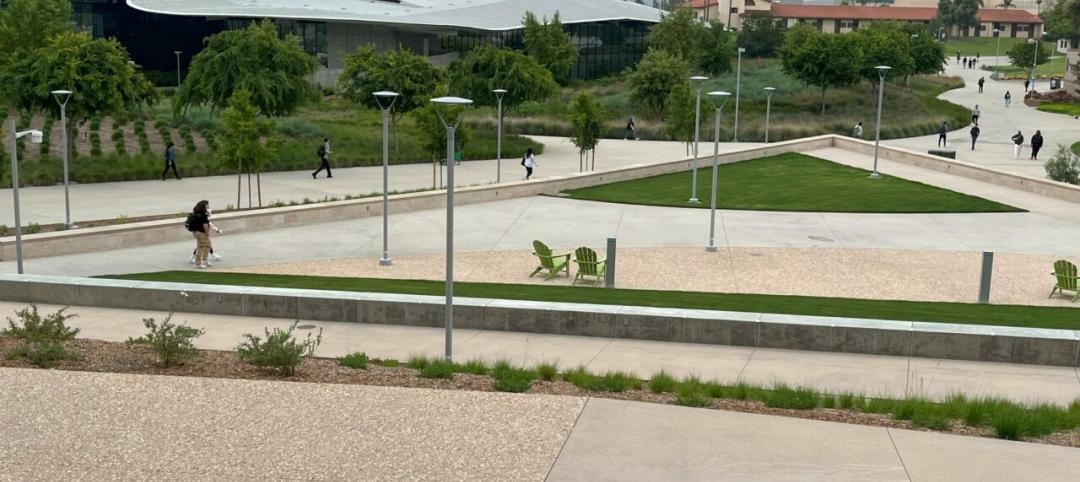Builders, developers, and owners are constantly complaining that high-performance buildings rarely get their due from appraisers who, they say, don’t have good measures to compare one building’s energy savings over another’s, or how those savings affect the value of the building.
The Appraisal Foundation, a nonprofit organization authorized by Congress to establish appraisal standards, is working methodically to alter this perceived image of cluelessness. Within the next few weeks, the Foundation is expected to issue the final draft of its guidance related to background and competency for appraisers valuing green buildings.
John Brenan, the Foundation’s director of appraisal issues, tells BD+C that states may elect to start adopting this guidance by early next year. And while the guidance would be voluntary, Brenan believes it may serve as a safe harbor for appraisers performing appraisals on green buildings.
The final guidance relating to the valuation of green buildings may offer methods and techniques to allow compliance with the Uniform Standards of Professional Appraisal Practice (USPAP).
That Board—which utilizes panels of experts, including those with green-building expertise—is one of three independent boards that comprise the Foundation, the other two being the Appraiser Qualifications Board and the Appraisal Standards Board.
The Foundation is also working on more specific guidance for appraisers to use when valuing the “greenness” of one- to four-unit residential buildings; and commercial, multifamily, and institutional properties.
Brenan says these guidances would contain methods and techniques that show appraisers what to look for and how to compare a building’s green features, materials, and construction management with other buildings in a market.
He expects an initial “exposure draft” of these guidances could be available for public comment in the first quarter of 2015. “Our hope is that all three advisories are adopted by late 2015, so the Foundation would have a tool kit for appraisers and regulators to use.”
At press time, Brenan was unable to elaborate on the proposed methodologies. And he is quick to note that appraisers don’t set values; “they just mirror what’s going on in a market.”
He did note, however, that the guidance being developed includes how to compare properties that have sold with like green features, and how to recognize market-to-market differences.
“One of the most interesting potential [guidances] would be to look at anticipated cost savings over an extended period of time,” he says.
Brenan points out that there is never going to be a “plug-in formula” for green valuation that fits all buildings. “It is still completely market-driven, and markets are stratified. Just because you have green features doesn’t mean the appraisal will be apples to apples. It’s kind of a sliding scale.”
That being said, Brenan readily acknowledges that there aren’t enough appraisers out there who are competent enough to assess how high performance should be factored into a home’s valuation. He’s speaking from experience. “I live in California, in a home that has a solar photovoltaic system, and the appraiser didn’t know what to do with it. So that became a little educational experience.”
Brenan says that anyone in the building, design, and construction sectors who wants to get involving in helping to develop these guidances can contact him directly at John@appraisalfoundation.org.
Related Stories
Multifamily Housing | Jun 28, 2023
Sutton Tower, an 80-story multifamily development, completes construction in Manhattan’s Midtown East
In Manhattan’s Midtown East, the construction of Sutton Tower, an 80-story residential building, has been completed. Located in the Sutton Place neighborhood, the tower offers 120 for-sale residences, with the first move-ins scheduled for this summer. The project was designed by Thomas Juul-Hansen and developed by Gamma Real Estate and JVP Management. Lendlease, the general contractor, started construction in 2018.
Architects | Jun 27, 2023
Why architects need to think like developers, with JZA Architecture's Jeff Zbikowski
Jeff Zbikowski, Principal and Founder of Los Angeles-based JZA Architecture, discusses the benefits of having a developer’s mindset when working with clients, and why architecture firms lose out when they don’t have a thorough understanding of real estate regulations and challenges.
Apartments | Jun 27, 2023
Average U.S. apartment rent reached all-time high in May, at $1,716
Multifamily rents continued to increase through the first half of 2023, despite challenges for the sector and continuing economic uncertainty. But job growth has remained robust and new households keep forming, creating apartment demand and ongoing rent growth. The average U.S. apartment rent reached an all-time high of $1,716 in May.
Apartments | Jun 27, 2023
Dallas high-rise multifamily tower is first in state to receive WELL Gold certification
HALL Arts Residences, 28-story luxury residential high-rise in the Dallas Arts District, recently became the first high-rise multifamily tower in Texas to receive WELL Gold Certification, a designation issued by the International WELL Building Institute. The HKS-designed condominium tower was designed with numerous wellness details.
University Buildings | Jun 26, 2023
Addition by subtraction: The value of open space on higher education campuses
Creating a meaningful academic and student life experience on university and college campuses does not always mean adding a new building. A new or resurrected campus quad, recreational fields, gardens, and other greenspaces can tie a campus together, writes Sean Rosebrugh, AIA, LEED AP, HMC Architects' Higher Education Practice Leader.
Standards | Jun 26, 2023
New Wi-Fi standard boosts indoor navigation, tracking accuracy in buildings
The recently released Wi-Fi standard, IEEE 802.11az enables more refined and accurate indoor location capabilities. As technology manufacturers incorporate the new standard in various devices, it will enable buildings, including malls, arenas, and stadiums, to provide new wayfinding and tracking features.
Green | Jun 26, 2023
Federal government will spend $30 million on novel green building technologies
The U.S. General Services Administration (GSA), and the U.S. Department of Energy (DOE) will invest $30 million from the Inflation Reduction Act to increase the sustainability of federal buildings by testing novel technologies. The vehicle for that effort, the Green Proving Ground (GPG) program, will invest in American-made technologies to help increase federal electric vehicle supply equipment, protect air quality, reduce climate pollution, and enhance building performance.
Office Buildings | Jun 26, 2023
Electric vehicle chargers are top priority for corporate office renters
Businesses that rent office space view electric vehicle (EV) charging stations as a top priority. More than 40% of companies in the Americas and EMEA (Europe, the Middle East and Africa) are looking to include EV charging stations in future leases, according to JLL’s 2023 Responsible Real Estate study.
Laboratories | Jun 23, 2023
A New Jersey development represents the state’s largest-ever investment in life sciences and medical education
In New Brunswick, N.J., a life sciences development that’s now underway aims to bring together academics and researchers to work, learn, and experiment under one roof. HELIX Health + Life Science Exchange is an innovation district under development on a four-acre downtown site. At $731 million, HELIX, which will be built in three phases, represents New Jersey’s largest-ever investment in life sciences and medical education, according to a press statement.
Sports and Recreational Facilities | Jun 22, 2023
NFL's Jacksonville Jaguars release conceptual designs for ‘stadium of the future’
Designed by HOK, the Stadium of the Future intends to meet the evolving needs of all stadium stakeholders—which include the Jaguars, the annual Florida-Georgia college football game, the TaxSlayer.com Gator Bowl, international sporting events, music festivals and tours, and the thousands of fans and guests who attend each event.

















